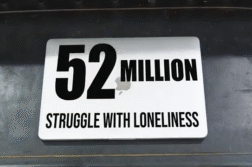ORLANDO, Fla. (Ivanhoe Newswire) — A Bankrate survey found that 28 percent of U.S. adults have no cash savings at all. And 46 percent don’t have the equivalent of three months of expenses saved. Experts say an emergency fund is vital for your financial well-being, but just how much should you put away?
Even if money isn’t a problem now, financial advisers say everyone should have an emergency fund. It’s what will keep you going if you lose your job or experience a financial crisis.
At the bare minimum, experts say to put away three months’ worth of savings. But six to nine months is ideal. The first step: calculate what your basic monthly living expenses are. Cut out unnecessary spending like vacations, gifts, and dining out. Typically this will reduce your average monthly expenses by 30 percent or more. Then start saving, even if it’s slow. Let’s say you put aside 50 dollars a week. After a year, that’s 2,600 dollars saved. Make it 100 a week, and that’s 5,200 dollars. Several online calculators can help you plug in your expenses to come up with the magic emergency fund number. Also, apps like PlentyFi allow you to ask others to contribute to your savings goal via social media. Smart Deposit makes automatic transfers from your checking account to an investment account when you have extra cash. And Digit analyzes your income and spending to find money to safely set aside.
Many people wonder where they should keep their emergency fund. A high-yield savings account is typically a good place to store your cash. Experts also recommend keeping the funds in a separate account than your daily banking account.
Contributors to this news report include: Julie Marks, Producer; Katie Campbell, Assistant Producer; Roque Correa, Videographer and Editor.
To receive a free weekly e-mail on Medical Breakthroughs from Ivanhoe, sign up at: http://www.ivanhoe.com/ftk



